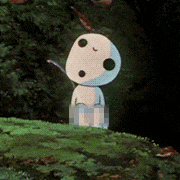|
Ok so ignoring the usual gang of libertarians making GBS threads up the thread, can you guys help me with some basic macroeconomic theory to help me get my head around this? I'm on board with the idea that a currency is made to be worth something through a government's demand that it's citizens pay tax with that currency, and that this demand is backed up by force. Then, the government prints money and pays it to people to do stuff. Where I get lost is how economic activity creates demand for more money, and how a government can spend (for example) $1 million and generate $1.5 million of "economic activity". How does this work? I know that you can't really apply macro economics to micro scales but let's try it anyway. The government puts out a contract to build a toaster factory for $1000. Jane Entrepreneur thinks "wow that's enough to pay my taxes for years!" and takes the contract. She then spends say, $600 of that paying other people to bring her the building supplies and build it. She now sits on the remaining $400 to pay her taxes. But now, a toaster factory exists, and people want toasters. It costs $1 to get the materials and build a toaster, and Jane charges $2 for a toaster. Money is now worth more because people want(have) to pay their taxes with it, but also now want to buy toasters with it, and this offsets money being worth less at the beginning when the government created $1000 out of thin air. Is this right? I'm struggling to understand how economic activity increases demand for money and I'd appreciate a better example. Is it as simple as "more poo poo to buy that people want" Funnily enough the other parts of MMT seem clearer than the classical model. Money being worth something because society says it is seems far more realistic than ~inherent values~ of poo poo -- edit -- Ok i did some googling and I think I get it now. Deflation can be caused by an increase in supply without a corresponding increase in demand. When we built a toaster factory, we increased the supply of toasters without increasing demand, so the value of toasters went down. If you can only buy toasters (because they're a stand in for all consumer goods and services in this example), then you can buy more with your money. So, if you like, rather than the value of toasters decreasing the value of money increased, ie deflationary pressure. And thus, economic activity has increased the demand for money. Splode fucked around with this message at 08:59 on Feb 12, 2019 |
|
|
|

|
| # ¿ May 15, 2024 04:37 |
|
Ah, that all makes sense, thanks you two!
|
|
|
|
Yeah but again isn't it better to model reality rather than just pretend we're still on the gold standard and the government has a big scrooge mcduck pool of money? "The poor are too stupid for the truth" is not a very good left wing argument.
|
|
|
|
Germany was not a wealthy power in the 1920s, and certainly wasn't the economic powerhouse it is today. The hyperinflation was just one symptom of many that came from the government disintegrating, not what caused that disintegration. I highly recommend The Wages Of Destruction if ww2 and economics are your cup of tea. Splode fucked around with this message at 07:54 on Mar 7, 2019 |
|
|
|
Yeah, and there were armed political paramilitaries fighting in the street. It's not a relevant example of inflation causing problems in the modern us economy because you have to ignore two different elephants in the room, one who died in ww1 and the other with a very tiny moustache
|
|
|




